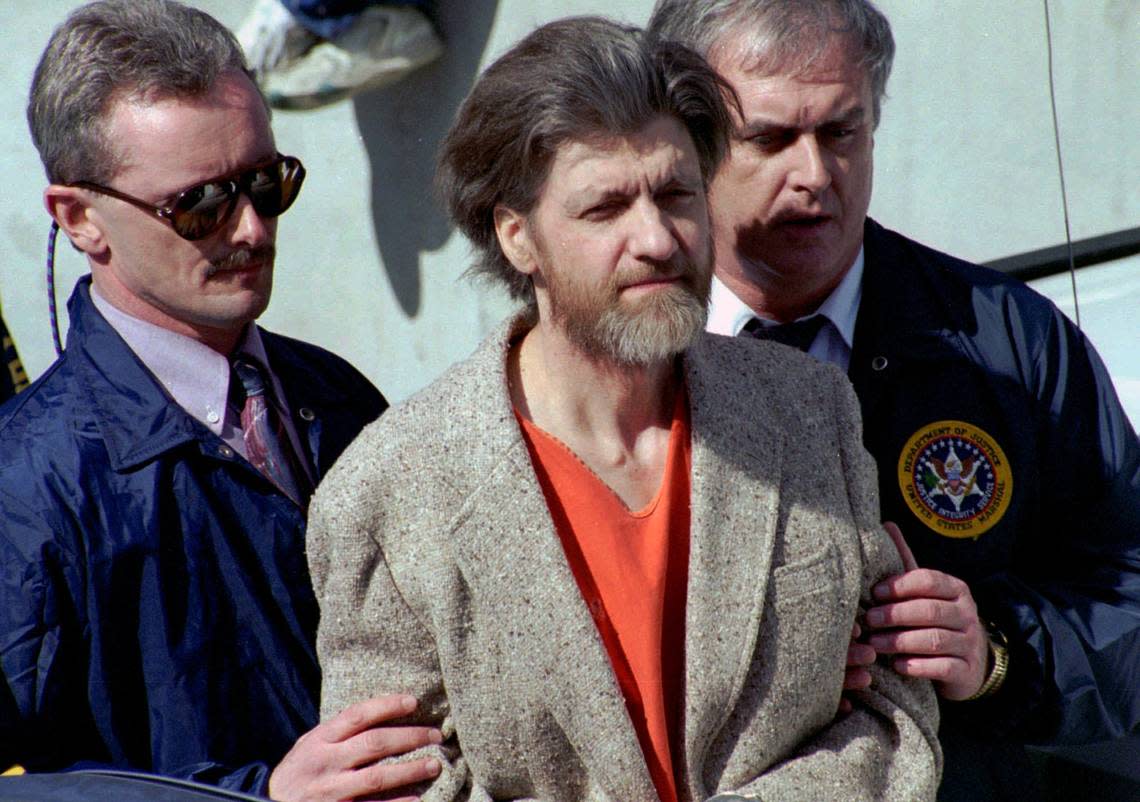Unabomber Ted Kaczynski died by suicide in federal prison at Butner, North Carolina
Ted Kaczynski, the “Unabomber,” was found dead early Saturday morning at a federal prison in North Carolina, according to the Federal Bureau of Prisons.
Kaczynski died by suicide at the Federal Medical Center, Butner, in Granville County, the Associated Press reported. He was 81 years old.
In 1998, Kaczynski was sentenced to eight consecutive life sentences in connection with a series of bombings that happened over the course of 18 years. From his isolated cabin in Montana, Kaczynski targeted university professors, business executives and a public relations office in a one-man campaign against modernization.
Kaczynski was transferred to Butner from a Supermax prison in Colorado in late 2021. Butner has the Federal Bureau of Prison’s largest medical complex and is known for treating inmates with health problems, The Washington Post previously reported.
Prison staff found Kaczynski unresponsive in his cell at 12:25 a.m. Saturday, according to a Bureau of Prisons release. Staff “immediately initiated life-saving measures,” according to the release. Kaczynski was taken to a nearby hospital where he was pronounced dead.
A Federal Bureau of Prisons spokesman said the agency does not release information about how inmates have died, deferring to medical examiners for official causes of death.
“For safety, security, and privacy reasons, this office does not share specifics regarding the cause of death for any inmate,” Donald Murphy, the spokesman, wrote in an email.
From 1978 to 1995, Kaczynski carried out a violent one-man campaign against the industrialization of society and destruction of nature. From a small cabin in Montana, Kaczynski built and mailed bombs targeting dozens of people.
In total, Kaczynski sent 16 bombs. They killed three people and hurt 23 more.
The Federal Bureau of Investigations started the so-called UNABOMB task force in 1979. It was named after the university and airline bombs that were among the first Kaczynski sent, according to an FBI history of the case.
A pair of Kaczynski’s bombs were sent to the University of California at Berkeley, where he had previously worked as an assistant mathematics professor.

Kaczynski was captured in 1995 after sending The New York Times and The Washington Post a 35,000-word manifesto, demanding they publish it. His brother, David Kaczynski, read the manifesto and compared it with previous letters from Ted before alerting the FBI.
Kaczynski previously attempted suicide in 1998 in a Sacramento, California, jail cell shortly before his trial was set to begin.
The attempt happened after Kaczynski tried to fire his attorneys because they intended to tell jurors he was mentally ill, The Los Angeles Times reported at the time. Kaczynski feared either being diagnosed or labeled as mentally ill, one of those attorneys told reporters at the time.
After Kaczynski’s suicide attempt and before the trial could begin, a court-appointed psychiatrist diagnosed him with paranoid schizophrenia. That diagnosis led to a judge denying Kaczynski’s repeated efforts to represent himself, a step The New York Times reported at the time paved the way for a plea deal.
That deal meant the death sentence was taken off the table for Kaczynski, who would instead spend the rest of his life in prison. Kaczynski also waived his right to appeal as part of the agreement.
As he accepted the plea, The New York Times reported that Kaczynski struck “what sounded like cheerful tones” as the judged asked if he’d committed the acts described.
At his sentencing in May 1998, The Washington Post reported, U.S. District Judge Garland Burrell Jr. said Kaczynski would have repeated the bombings again if he could have.
“The defendant committed unspeakable and monstrous crimes for which he shows utterly no remorse,” Burrell said.
